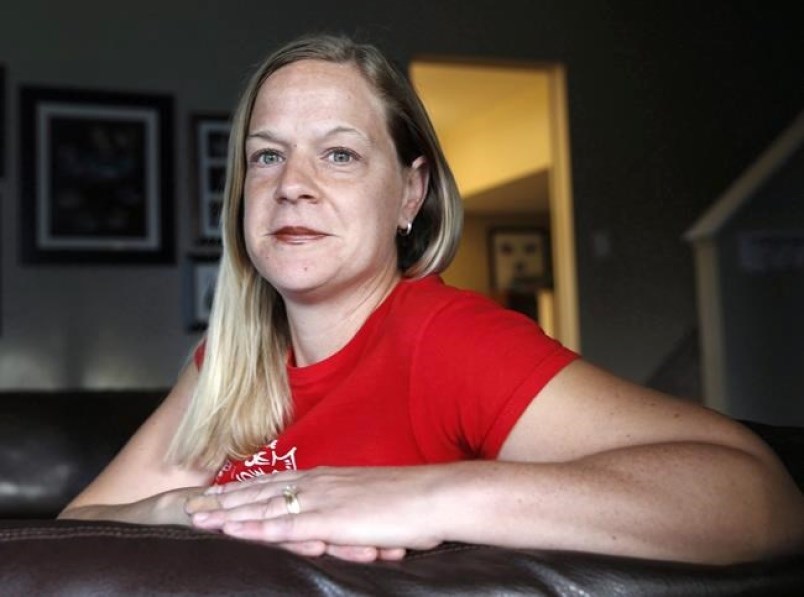It was seven years ago this week that the federal government told new mom Jennifer McCrea she couldn't access sickness benefits while on maternity leave.
On Tuesday, the government publicly said it made the wrong decision and is agreeing to pay an estimated $11 million to about 2,000 women who, like McCrea, were blocked from accessing 15 extra weeks of employment insurance payments on top of a year's worth of maternity benefits — despite the rules saying they could.
McCrea, the woman at the centre of the case, said the settlement had left her in tears most of the day with the burden of the case now lifted from her shoulders.
"There were a lot of people that this happened to and we wanted to make sure it didn't happen to anybody else in the future and that we needed to help them," McCrea said in a telephone interview from her home in Calgary.
"Absolutely we've been successful in doing that. Whether that took seven years or 17 years, that was originally what it had to be and it wasn't just about me.... It was about helping others."
McCrea was diagnosed with breast cancer in July 2011, while she was on maternity leave with her youngest son, Logan, who was eight months old at the time.
She had a double mastectomy in August 2011 and was deemed cancer-free shortly afterwards, but was denied sickness benefits, despite a 2002 law that allowed new parents to access the additional weeks of EI payments.
McCrea took the government to court in 2012 alleging thousands of others were also denied benefits between 2002 and 2013, when the Tories clarified the law for all future claims.
The problem was that prior to 2013, the government wouldn't let new mothers and fathers switch from parental to sickness benefits until they could show they were otherwise available for work.
During the 2015 federal election the Liberals vowed to put an end to the legal dispute if they were elected only to rack up a legal bill of more than $2.5 million fighting the women in court after they formed government.
Federal lawyers gave the first hints earlier this year that the Liberals were ready to settle the case. Months of negotiations and paperwork followed before documents were officially submitted in August.
The settlement is conditional on Federal Court approval that is expected to happen in early December and payments should begin flowing to eligible women by next spring.
"I'm happy about it. It's just a tremendous relief," McCrea said.
In a statement, the government said it "recognizes the challenges faced by Canadians who cannot work because of illness, injury and other family challenges" and reached a settlement in the case to "bring closure to these legal proceedings."
Ottawa has not asked for any upper limit for pay outs, meaning federal coffers will pay out 100 per cent of the wrongfully denied benefits, including to families of women who have died. The total cost could be between $8.5 million and $11 million, but that will depend on the number of eligible women.
McCrea's lawyer, Stephen Moreau, said the government's decision to not impose a cap on payments was significant, particularly after a protracted legal fight.
"Although this has taken a long time to get here, six and a half years of litigation, I am happy," he said.
The women in the case, he said, have "persevered and they're going to get 100 per cent what they're owed."



